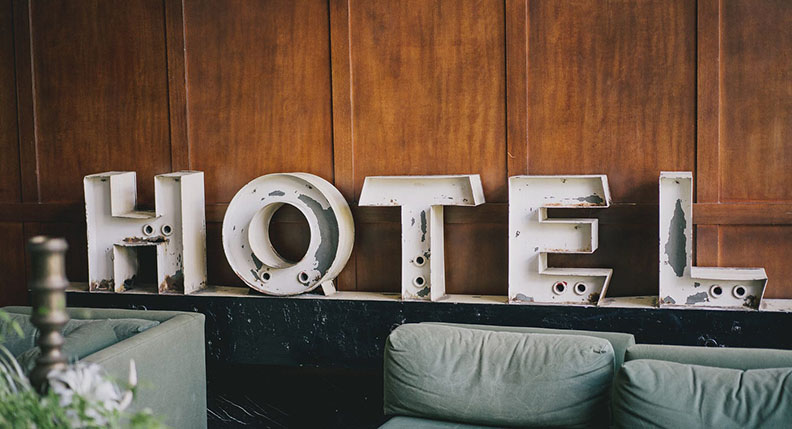I often find myself traveling around the world, staying in a variety of hotels and experiencing different types of accommodations. While travel is full of excitement and adventure, one of the most important aspects for me is ensuring that I get a good night’s sleep after long flights or busy days of sightseeing. After all, only with enough rest can I feel rejuvenated and enjoy every moment of my travels to the fullest.
However, sleep during travel is not always as easy as it sounds. Whether it’s due to jet lag, hotel environments, noise, or uncomfortable beds, these factors often disrupt our ability to get a good night’s sleep in hotels. So, how can we ensure a great night’s sleep, especially in unfamiliar hotel rooms?
I will share some scientifically-backed methods to help you sleep better while traveling, especially in hotels. These tips have been proven effective, helping me maintain good sleep quality during my travels, and they can help you achieve the same. By using these techniques, you’ll not only get a better night’s sleep but also improve your overall travel experience by staying energized and refreshed.
1. Choosing the Right Hotel Room
When it comes to getting good sleep, choosing the right hotel room plays a crucial role. While many people focus on price and location when booking a hotel, there are a few other factors that you should consider for a better night’s rest.
1.1 Avoid Rooms Near Elevators and Stairs
You might not realize it, but rooms near elevators and stairwells can be disruptive to your sleep. The noise from elevators constantly going up and down, or the sounds from people passing by, talking, or using the stairs, can disturb your rest. Try to choose a room away from these noisy areas. A good rule of thumb is to ask for a room on a higher floor, but not too high, as you also want easy access to exits and amenities.
1.2 Opt for Higher Floors
Staying on a higher floor usually guarantees less street noise. In cities, rooms higher up are typically far removed from the bustling noises of traffic, people walking by, or late-night activities. Rooms on higher floors are also generally quieter, especially if the hotel is located in a busy district. A higher floor room can improve the quality of your sleep by offering a more peaceful environment.
1.3 Avoid Rooms Close to Public Spaces
Rooms near public spaces like meeting rooms, gyms, or bars can be noisy at night. Hotel bars, in particular, tend to stay lively well into the night, with music and conversations that might disturb your rest. When booking a room, try to request one further away from these areas to reduce the likelihood of disturbances.
1.4 Ensure the Room is at the Right Temperature
Room temperature can significantly affect your sleep quality. If it’s too hot or too cold, it will make it harder for you to sleep comfortably. Most hotels have adjustable air conditioning or heating systems, so be sure to set the room temperature to your preferred level. Generally, the optimal sleeping temperature ranges from 18-22°C (64-72°F), and keeping your room within this range can improve your sleep quality.
2. Make the Bed More Comfortable
Whether it’s the firmness of the mattress, the height of the pillows, or the cleanliness of the linens, all these factors directly influence your sleep quality. In a hotel room, the bed might not always be perfectly suited to your preferences, but there are several small things you can do to enhance your comfort.
2.1 Adjust the Mattress Firmness
Some people prefer a soft mattress, while others need a firmer one. Hotel mattresses may not always meet your specific needs, but you can usually request a mattress topper or even a mattress change at the front desk. Many hotels offer extra mattress toppers or comfort layers to make your bed more comfortable, so don’t hesitate to ask for these upgrades if you’re not satisfied with the bedding.
2.2 Choose the Right Pillow
People also have different preferences when it comes to pillows. Some prefer a soft pillow, while others need a firmer one for proper neck support. Many hotels offer standard pillows, but if they don’t work for you, it’s worth asking for an extra pillow or a different type. Many high-end hotels offer various types of pillows, such as memory foam or feather pillows, allowing you to choose the one that best suits your needs.
2.3 Clean Bedding is Essential
There’s nothing more unpleasant than trying to sleep on dirty sheets or with an unpleasant odor. If you find that the bedding is not clean or doesn’t meet your expectations, contact the front desk for a change. It’s a simple yet highly effective way to improve your sleep experience.
3. Control Your Hotel Room Environment
Creating a comfortable environment is crucial for a good night’s sleep. There are several things you can do to ensure the room environment supports your rest.

3.1 Minimize Noise Disruptions
Noise is one of the biggest factors that can impact your sleep. Try to reduce outside noise disturbances, such as street sounds, loud music, or voices. If you’re sensitive to noise, earplugs can be helpful in blocking out unwanted sounds. Alternatively, many hotels provide white noise machines, which can mask disturbing sounds and create a more peaceful atmosphere for sleep.
3.2 Control the Lighting
Lighting plays a crucial role in sleep quality. Many people sleep better in a dark environment, so make sure the room isn’t too bright. Turn off any unnecessary lights, and use blackout curtains to block out external light sources. If you’re sensitive to light, you can also use an eye mask to ensure a completely dark environment. Many high-end hotels offer blackout curtains or shades, which can further enhance your ability to sleep in darkness.
3.3 Control Air Quality in the Room
Air quality also affects your ability to sleep well. Avoid smoking indoors or keeping the room stuffy. If the room feels dry, request a humidifier, as dry air can make you uncomfortable while you sleep. Fresh air can make a huge difference in helping you relax, making it easier to fall asleep and stay asleep.
4. Adjust to the Time Zone and Overcome Jet Lag
Jet lag is one of the most common sleep-related issues during travel, especially when crossing multiple time zones. Our internal clocks can get disrupted, making it harder to sleep at the appropriate times. Adjusting your biological clock and adapting to the new time zone quickly can help you sleep better and stay energized during your travels.
4.1 Rest According to Local Time
Try to adapt to the local time as soon as possible. If you arrive during the day, avoid taking long naps, as they can disrupt your sleep schedule. If you feel very tired, try light activities, such as a walk or some stretching, to stay awake and avoid disrupting your body’s adjustment to the local time zone.
4.2 Avoid Caffeine and Heavy Meals at Night
Caffeine and heavy meals can make it difficult for your body to relax and fall asleep. Avoid consuming coffee, tea, chocolate, and other caffeinated drinks in the evening. Additionally, heavy or greasy meals can place stress on your digestive system and make it harder for you to sleep. A light, healthy dinner is usually the best choice if you’re hoping to sleep well at night.
4.3 Try Exposure to Natural Light
Natural light plays a vital role in adjusting your circadian rhythm. Try to spend time outdoors during the day, particularly in the morning, to help regulate your internal clock. If you’re struggling with jet lag, morning sunlight exposure can be incredibly beneficial in re-aligning your body’s natural rhythm.
5. Additional Tips for Sleeping Well While Traveling
In addition to the strategies above, here are some practical tips that can help you sleep better while traveling:
- Use Sleep Aids: Sleep masks, earplugs, and travel pillows are excellent tools to enhance your comfort while traveling. A good quality travel pillow can help reduce neck pain and improve your sleep quality.
- Exercise Regularly: Gentle exercise can promote relaxation, especially when done a day before your flight. Light stretching or walking can help you fall asleep more easily.
- Stay Hydrated: Proper hydration is crucial for maintaining health and good sleep quality. Be careful not to drink too much liquid before bed, though, as it might lead to frequent bathroom trips during the night.
6. Recommended International and Niche Brands

If you’re looking to invest in high-quality sleep aids, here are some international and niche brands I highly recommend. These brands are known for their exceptional sleep-related products and can help enhance your sleep experience during travels.
1. Tempur-Pedic (USA)
Tempur-Pedic is a leading brand specializing in memory foam mattresses and pillows. Their products offer outstanding support and comfort, making them a great choice for travelers looking to improve their sleep quality.
2. MediCare (Germany)
MediCare is a German niche brand known for offering sleep solutions that focus on health and comfort. Their pillows and mattresses provide excellent support, particularly for travelers looking for extra neck or lumbar support.
3. Sleep Number (USA)
Sleep Number offers innovative adjustable mattresses that allow users to customize the firmness and support. Their products are perfect for anyone who wants to optimize their sleep experience, even while traveling.
4. ErgoSleep (Germany)
ErgoSleep, a German niche brand, specializes in ergonomic travel pillows and sleep accessories. Their products are designed with comfort in mind, ensuring travelers can enjoy quality rest even in unfamiliar environments.
Getting a good night’s sleep while traveling is essential for staying energized and making the most of your journey. By choosing the right hotel room, adjusting your sleep environment, aligning with the local time zone, and using sleep aids when necessary, you can improve your sleep quality and wake up refreshed each day.



